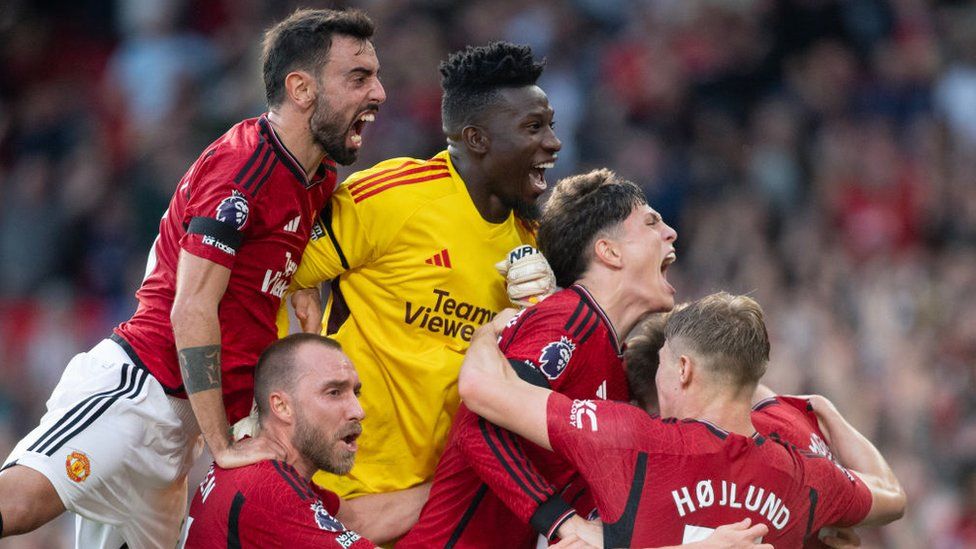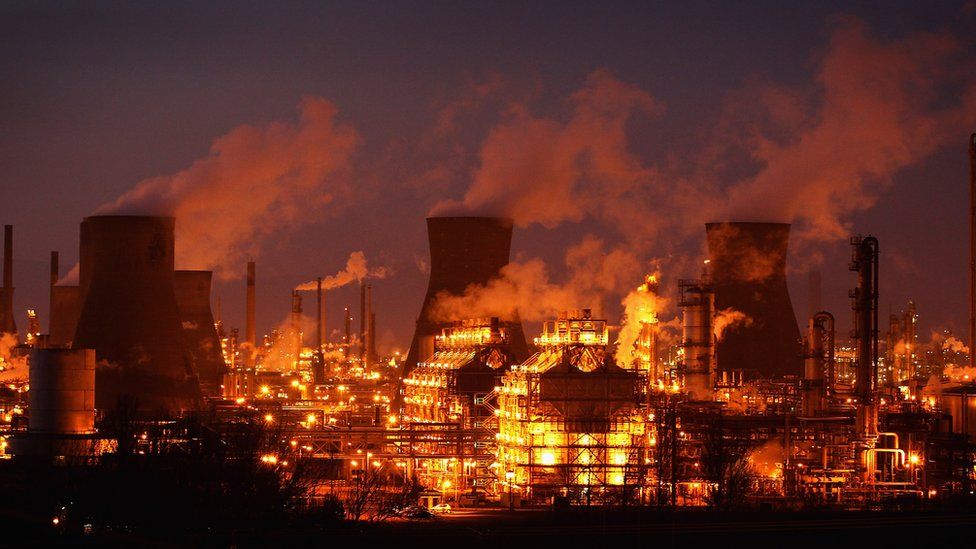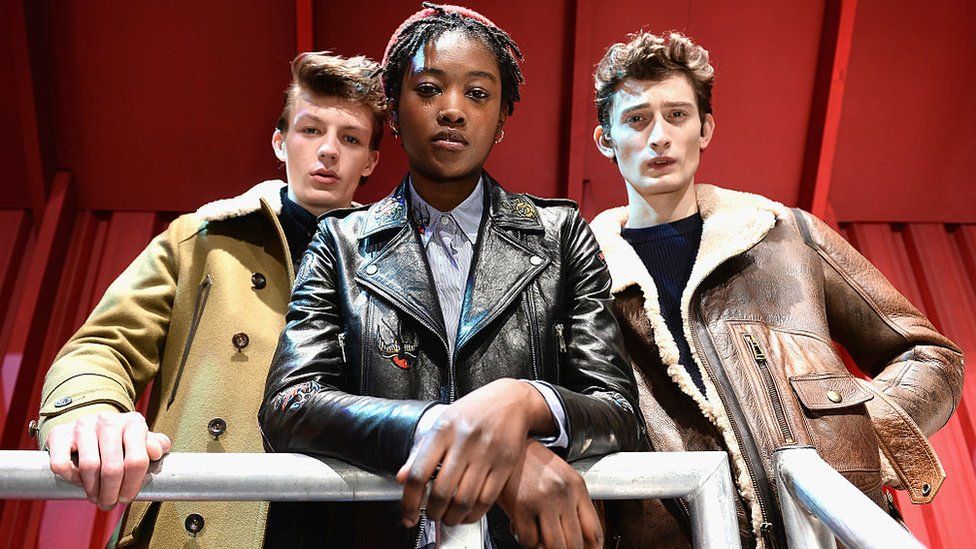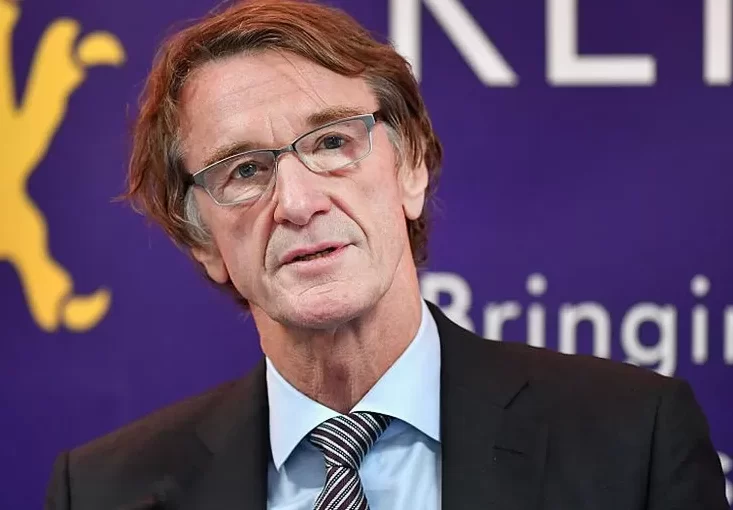One of the UK’s richest men, Sir Jim Ratcliffe has built a multi-billion pound business by buying unloved assets. He has now agreed a deal worth about £1.25bn to acquire a 25% stake in one of the UK’s best-loved brands: Manchester United FC.
United’s men’s team, 20-time English champions, are languishing in the Premier League and have been dumped out of other competitions this season under manager Erik ten Hag. But as a business, the club has always scored highly, boasting fans around the world.
The Ineos founder first expressed his interest in buying a stake in the club in January, after the Glazer family said they were considering a sale.
The Glazers have been criticised for their perceived lack of investment in the club, which has struggled since Sir Alex Ferguson retired in 2013. Before clinching the 2022/23 Carabao Cup, the club had not won a trophy since 2017.
Until recently Sir Jim faced a rival bid from Qatari banker Sheikh Jassim bin Hamad Al Thani. But he withdrew his offer, leaving the field clear for Sir Jim.
Born the son of a joiner in Failsworth, in Greater Manchester, Sir Jim is a boyhood United fan.
Through buying up and turning around cast-off parts of other businesses, Sir Jim has built up a huge fortune – although estimates of his wealth vary.
Forbes puts it at about $18bn (£15.8bn), whereas the Sunday Times Rich List, which has him as the second wealthiest person in the UK, says it’s closer to £30bn.

Art of the deal
From operations once owned by the likes of oil giant BP, Sir Jim created a company – Ineos – whose chemicals and raw materials go into nearly everything we touch every day.
From 194 sites across 29 countries, Ineos generates sales of around £50bn and employs more than 26,000 people.
Its raw materials are used in everything from packaging for toiletries, medicines and food, to mobile phones and furniture.
After graduating with a degree in chemical engineering from the University of Birmingham in 1974, he spent several years at oil firms BP and Esso before joining the fabric and chemicals producer Courtaulds.
Then, in 1989, he made a career-changing step into the world of private equity when he joined Advent International.
It taught Sir Jim the cut and thrust of doing deals, before he made the leap into co-owning a business himself based on what would become a well-worn strategy.
He and fellow businessman John Hollowood bought BP’s chemicals division in Hythe near Southampton for £40m in 1992. By 1994, it was valued at £100m when it floated on the London Stock Exchange.
The business, called Inspec, went on to acquire BP’s speciality chemicals business in Antwerp, Belgium. Sir Jim then left to form his own firm, Ineos, in 1998 which bought the Belgian business for £89m.
Ineos has since grown to become a chemical powerhouse, expanding through acquisitions or by investing in controversial areas such as fracking.

Because of his decision never to float the company and thus have no City shareholders to consult, Sir Jim – who is also the majority shareholder of Ineos – has been able to move quickly on deals.
He has also earned a reputation as a tough negotiator in industrial disputes.
Famously he faced off against unions at the Grangemouth petrochemical plant and refinery in Scotland in 2013, amid the threat of company-wide strikes over pay and pensions.
The dispute – which earned Sir Jim the Bond villain moniker of Dr No – led to Ineos announcing that it would close the plant and cut 800 jobs.
However, the firm reversed its decision shortly afterwards when the Unite union agreed to a survival plan to invest £300m in the site to keep it open.
No stranger to controversy, Sir Jim attracted criticism when in 2016 Ineos imported the first ever shipment of shale gas (derived from fracking) from the US into the UK amid fierce opposition from green groups.
He also reportedly moved from the UK to Monaco in 2020, a place that does not collect personal income tax or capital gains taxes. Sir Jim declined to comment but when asked about reports he was moving to the principality in 2019 he told the BBC that he tried to “give back to the UK” and had invested £2.5bn in the country.

In recent years, Sir Jim’s business interests have moved away from chemicals. He announced plans to build a new vehicle based on the Land Rover Defender, which was discontinued in 2016.
However, in 2020, Sir Jim, who was a Leave campaigner in the run-up to the Brexit referendum, said the new 4×4 vehicle would be built in France, ending hopes it would be made at a new plant in Wales.
In 2017, Ineos bought Belstaff, the luxury motorcycle wear maker whose jackets were once worn by actor Steve McQueen and modelled by the likes of David Beckham. Ineos also has a partnership with the Mercedes F1 team.
And in 2019, Sir Jim became the new owner of a high-profile professional cycling team, after Ineos took over the former Team Sky. The team is now called Ineos Grenadiers.
Whether or not these businesses could be classed as unloved is not certain, but Sir Jim clearly saw plenty of potential in them.
Sir Jim already has some footballing interests, as he owns French side Nice and Swiss club Lausanne-Sport.
In May last year, Sir Jim made an unsuccessful £4.25bn offer to buy Chelsea after owner Roman Abramovich put the London club up for sale.
At the time, he told BBC Sport he was a Manchester United fan and the only reason he was not bidding for the Red Devils was because they were not for sale.
That is obviously no longer the case. Under the deal announced on Christmas Eve, he is set to take control of United’s football operations, alongside a minority stake.
Ratcliffe, 71, will also provide $300m (£236m) for future investment into Old Trafford.






